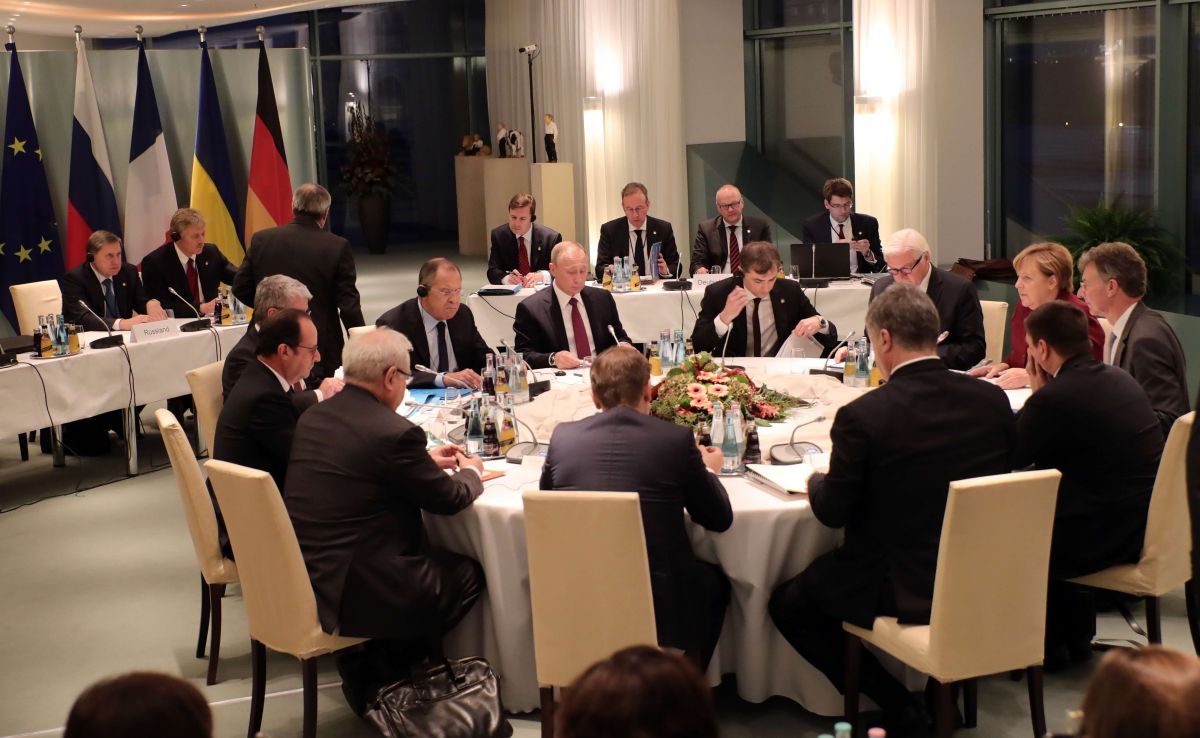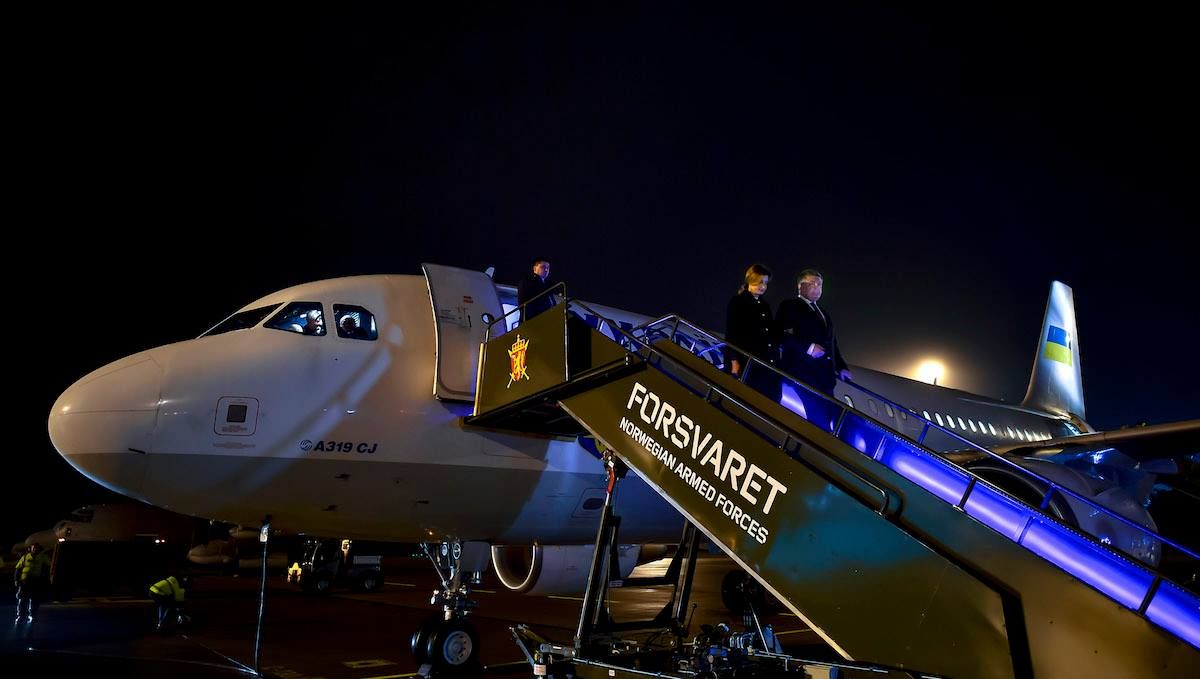
Ukrainian interest. Dinner with aftertaste, soothing Brussels, and prospects of joint Declaration
The Normandy Four meeting in Berlin has left a mixed impression and seems to have not brought the Donbas conflict settlement anywhere closer. Petro Poroshenko in Brussels felt the support of the EU leadership and the NATO Secretary General. The parliaments of Ukraine and Poland passed a Declaration of Remembrance and Solidarity.
A Normandy format dinner in Berlin has taken place, although top level bargaining around it was ongoing up until the last moment. It started with Vladimir Putin being late as usual and with some preliminary consultations between the leaders of Germany, France, and Ukraine. Not only was the Russian president late, he also brought along Vladislav Surkov, one of the sanctioned Russian officials under a travel ban across the EU. Apparently, in such an arrogant way, Putin, showed his attitude toward the sanctions policy of the Western powers. On the other hand, he could not afford posing as a destroyer of the Normandy format.
The interpretations of the agreements reached (no documents were signed this time) in these almost five-hour talks by different participants of the meeting vary markedly. Besides, the Russian side tried to repudiate the statements of Petro Poroshenko on the need for working out a roadmap for the implementation of Minsk agreements and the agreement on OSCE’s armed police mission in Donbas. The Kremlin also tried to deny Vladimir Putin’s ostensible willingness to engage in dialogue.
The day following the meeting, Putin’s spox Dmitry Peskov corrected Moscow's position on Donbas, while the Russian TV convinced Russian viewers that the main discussion was related to the situation in Syria without the participation of Poroshenko. There is nothing surprising in such behavior of the Russian media, because the Kremlin’s actions in the international arena are largely subordinated to internal political reasons.
It should be recalled that the last time the Normandy Four met was a year ago in Paris. In general, none of the meetings of the four leaders has ever resulted in a joint follow-up briefing. Therefore, the competition of interpretations is no surprise, and neither is the Russian refusal to hand over to Ukraine its citizens illegally convicted in Russia - Oleg Sentsov and Oleksandr Kolchenko. In this situation, Poroshenko’s position "We are ready to fulfill Minsk agreements, but not at the expense of Ukrainian interests" looks absolutely logical. Unfortunately, there is still a huge distance to go to any settlement in Donbas, and no one dares to predict how long it will take to cover this distance. And the arguments about the prospects of regaining control over the sections of the Ukrainian-Russian border do not seem to be the primary problem in the east of Ukraine at the moment.
Before the Berlin dinner, Petro Poroshenko flew to Norway, becoming the first Ukrainian president to visit the Land of the Vikings. Scandinavia rather undeservedly remains on the periphery of the Ukrainian foreign policy, although the EU's future is anything but crystal clear, while Northern Europe could become a reliable partner in many sectors of the economy, including finance and agriculture.

From Berlin, Poroshenko went to Brussels and Maastricht, where he had meetings with the leaders of the European Union and NATO. Apparently, the Ukrainian president heard something very encouraging from them, once he hastened to declare that the Ukrainians will enjoy visa-free travel to the EU as early as November. However, such super-optimistic scenario is not considered seriously, even against the background of public reverence of the EU leaders. NATO Secretary General Jens Stoltenberg also vowed to support Ukraine, reiterating the consistent and constructive position of the Alliance.
The Verkhovna Rada and the Polish Sejm approved the Declaration of Remembrance and Solidarity, blaming Nazi Germany and the Soviet Union for inciting World War II and calling on historians to do research of the events across the "Bloodlands" in Central and Eastern Europe. The document is unlikely to become a real counterweight to a controversial film Volyn recently released in Poland, but it looks like an attempt to overcome the existing problems in bilateral relations.
Yevgeny Magda

